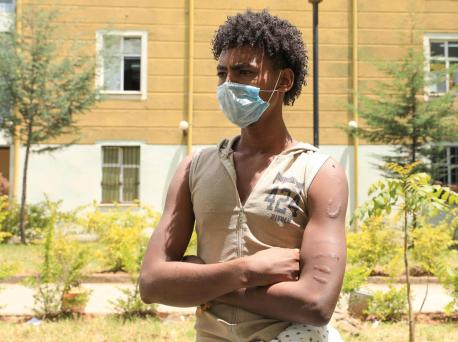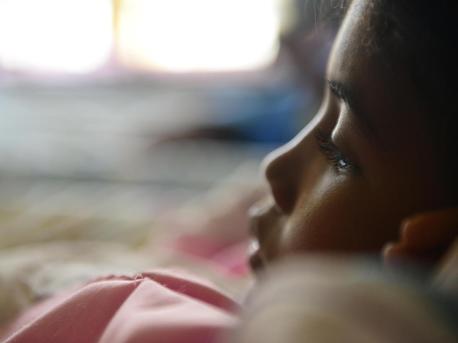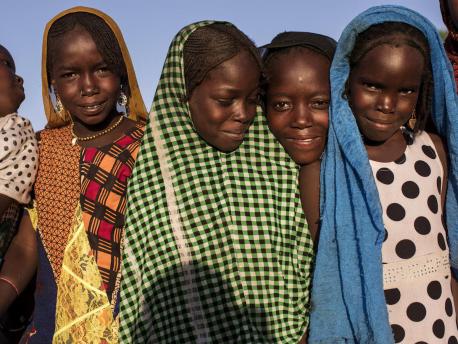
No More Child Trafficking
"Before I began my Gold Award project, I thought trafficking happened only in India. When I researched this subject, I was in disbelief to learn that trafficking happens near my home in the Bay Area too."
Children should spend their childhood in school, not working on the farm or begging on the streets. During my previous visits to India, I have seen young children working in restaurants, cleaning tables, selling various items on the streets, begging near traffic lights, doing agricultural labor, or working in factories.
I am a Girl Scout Senior working towards earning my highest award as a Girl Scout called the Gold Award. Passionate about children’s causes, I wanted to build awareness about child trafficking. I therefore, chose to work with Ms. Hanna Cody from UNICEF for my Gold Award project.
Before I began my Gold Award project, I thought trafficking happened only in India. When I researched this subject, I was in disbelief to learn that trafficking happens near my home in the Bay Area too.
I believe that the first step to eradicate child trafficking is to educate our future. Knowing this empowered me to bring it to the attention of middle and high school students. These students will then help spread the word, helping protect many children from our society from being trafficked.
So far, I have given child trafficking awareness presentations in four high schools in two southern Indian cities, Bengaluru and Mysuru as well as at my own high school and local middle schools in the Bay Area. I even hosted an awareness table one weekend in my downtown to educate the locals.

During my presentations, I explain what child trafficking is and what fuels it; I tell stories of trafficked children from around the world, compare a victim's life to our life, talk about how the U.S regulates child labor, and finally close with a discussion on what we can all do together to help eradicate this unimaginable evil from this world.
Before I started, I would first ask the students what they knew about child trafficking. I got many answers, but other than a couple, none of them hit the right definition. Some students had heard stories of human trafficking while others thought human trafficking was a group of people moving on a road or public highway creating quite literally a traffic jam. This scared me because poor community awareness presents a vulnerability for traffickers to potentially exploit. During a presentation in the U.S., one of the students commented that since the city we live in is wealthy, trafficking will never happen here. They could not be more wrong. It is clear to me that children do not know enough about this topic, and I knew I was doing my part in spreading awareness about this topic.
When giving my presentations in India, I got to experience a different culture. I noticed that the students sat separated by gender and in one of the schools, I had to take off my shoes before entering the presentation hall. The students were respectful and asked many questions. Some even came up to talk to me after the presentation. This made me feel that my talk was worthwhile.
We can help fight trafficking with education, buying the right products, electing leaders that care about combating this issue, through social media, being aware of our surroundings and reporting to officials any suspicious activities.
Through my project, I have learned many different skills like respect, patience, kindness, confidence, empathy for different cultures, but most importantly I know that I can make a difference in this world. I plan to continue building awareness both in the Bay Area and in southern India. I have translated my presentation to the local Indian language, so that more students can be reached. Materials forwarded to teachers will also help in continuing the presentations every year in their school. My hope is that I inspire teens to take action.
HOW TO HELP
There are many ways to make a difference
War, famine, poverty, natural disasters — threats to the world's children keep coming. But UNICEF won't stop working to keep children healthy and safe.
UNICEF works in over 190 countries and territories — more places than any other children's organization. UNICEF has the world's largest humanitarian warehouse and, when disaster strikes, can get supplies almost anywhere within 72 hours. Constantly innovating, always advocating for a better world for children, UNICEF works to ensure that every child can grow up healthy, educated, protected and respected.
Would you like to help give all children the opportunity to reach their full potential? There are many ways to get involved.





